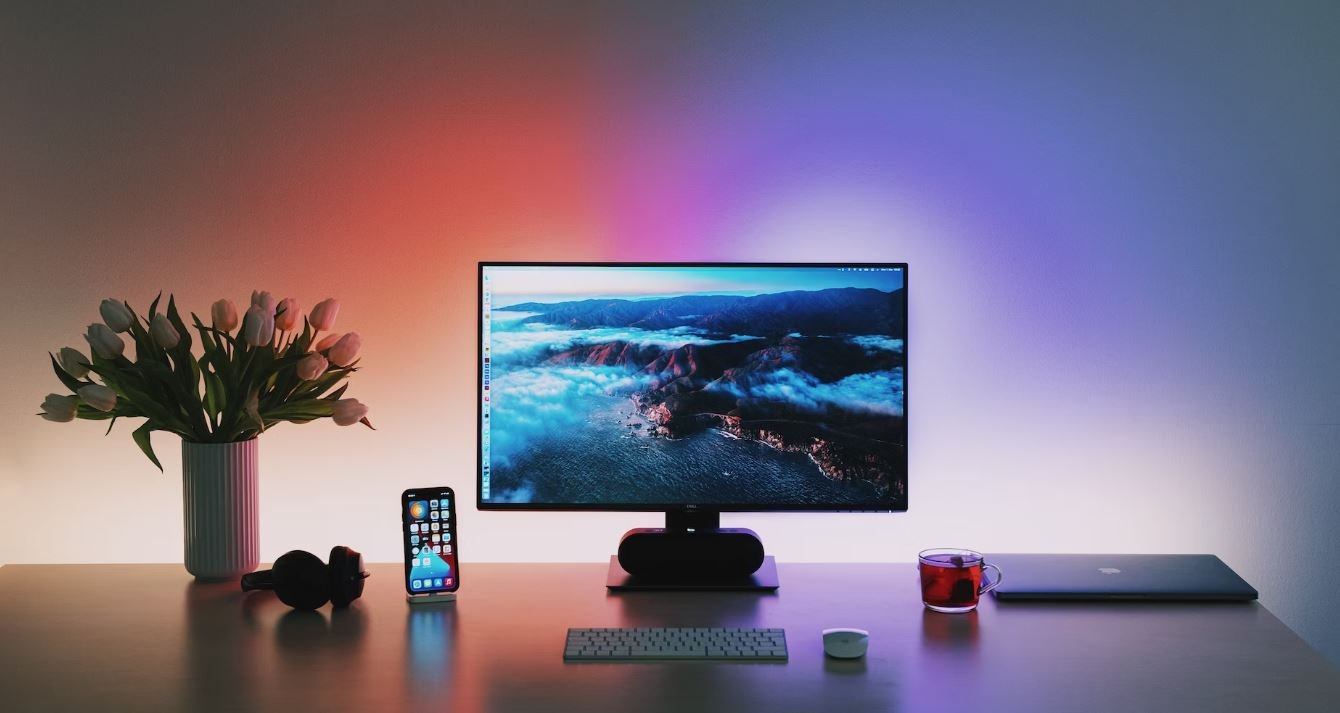What Is Blog and Vlog
Blogs and vlogs have become increasingly popular in the online world, providing individuals with platforms to share their thoughts, knowledge, and experiences. Blog is the abbreviated term for “weblog,” while vlog stands for “video blog.” Both mediums allow content creators to reach a wide audience, express themselves, and engage with their readers or viewers.
Key Takeaways:
- Blogs and vlogs are popular online platforms for sharing content.
- A blog is a written platform, while a vlog is a video-based platform.
- Blogs and vlogs enable content creators to reach and engage with their audience.
- Both mediums allow individuals to express themselves and share their experiences.
What is a Blog?
A blog is a regularly updated website or webpage where individuals or organizations publish written content. Blogs often focus on a specific subject or niche, such as fashion, travel, or technology. They provide an opportunity for individuals to express their opinions, share knowledge, tell stories, or promote products or services. Blog posts are typically displayed in reverse chronological order, with the newest post appearing at the top of the page.
A blog can be a powerful tool for building an online community and establishing expertise in a particular field.
What is a Vlog?
A vlog is a video-based platform where individuals share content in a video format. Vlogs are similar to blogs in terms of their purpose, but instead of written articles, vlogs feature videos. Vloggers often capture their daily lives, share educational content, provide product reviews, or showcase travel experiences. Vlogs allow a more personal and visual form of storytelling, connecting with viewers through visual and auditory elements.
With the rise of YouTube and other video-sharing platforms, vlogs have become increasingly popular and accessible.
Differences Between Blogs and Vlogs
| Blog | Vlog |
|---|---|
| Written format | Video format |
| Can be read at any pace | Viewed at the creator’s chosen pace |
| Emphasizes the written word | Emphasizes visual and auditory elements |
| Allows for longer and more detailed content | Offers a more personal and engaging experience |
Reasons to Start a Blog or Vlog
- Establish expertise in a specific field or industry.
- Share knowledge and educate others.
- Document personal experiences and adventures.
- Connect with like-minded individuals or a community.
- Promote products, services, or creative projects.
Benefits of Blogging and Vlogging
- Increased visibility and exposure to a wider audience.
- Opportunity to develop writing or video production skills.
- Creative outlet for self-expression.
- Networking opportunities with other bloggers or vloggers.
- Potential to monetize through partnerships, sponsorships, or ad revenue.
Vlog or Blog: Which One to Choose?
Deciding whether to start a vlog or a blog ultimately depends on your preferences, skills, and the type of content you want to create. Some individuals may feel more comfortable expressing themselves through writing, while others may thrive in front of a camera. Consider the medium that aligns with your strengths and the best way to communicate your ideas and experiences to your target audience.
Both blogs and vlogs offer unique opportunities for content creators to leave their mark on the digital landscape.
Conclusion
Both blogs and vlogs have transformed the way information is shared online. Whether you prefer writing or video production, these platforms provide a means to connect with others, express yourself, and explore your passions. Whether you choose to start a blog or a vlog, remember to always stay true to your voice and engage with your audience to create a meaningful online presence.
Common Misconceptions
Blog Misconceptions
One common misconception about blogs is that they are an online diary or journal. While some blogs might serve as personal diaries, the majority of blogs are more focused and informative. They cover a wide range of topics such as fashion, food, travel, and technology.
- Blogs are not just personal diaries, but can be highly informative resources.
- Blogs cover a wide range of topics, catering to different interests and niches.
- Many blogs are run by professionals and experts in their respective fields.
Vlog Misconceptions
Another misconception is that vlogs are only about YouTubers sharing their personal lives. While personal vlogs became popular, vlogs now encompass a variety of content, such as travel vlogs, educational vlogs, and product review vlogs.
- Vlogs extend beyond personal storytelling and can provide educational content.
- There are various types of vlogs, including travel vlogs and product review vlogs.
- Vlogs can be created by individuals or even by businesses for promotional purposes.
Content Quality Misconceptions
One common misconception is that all blogs and vlogs have low-quality content. This is not true as there are plenty of well-researched and professionally produced blogs and vlogs available online. While there may be some subpar content, there are also many high-quality resources.
- Not all blogs and vlogs have low-quality content; there are well-researched and professionally produced ones.
- Many bloggers and vloggers invest time and effort to provide valuable and engaging content.
- Quality of content can vary, but there are plenty of high-quality resources available.
Monetary Misconceptions
Some people have the misconception that every blog or vlog generates significant income. While some successful bloggers and vloggers may make a living from their platforms, the majority struggle to monetize their content. Earning money from a blog or vlog usually requires building a large audience and strategizing for revenue streams.
- Not every blog or vlog generates substantial income; it requires building a large audience and strategizing for revenue.
- Monetizing a blog or vlog is a challenge and requires various revenue streams.
- Only a small percentage of bloggers and vloggers can make a living from their platforms.
Time and Effort Misconceptions
Many people underestimate the time and effort required to create and maintain a successful blog or vlog. It’s not just about writing or filming but also about researching, editing, promoting, and engaging with the audience. Building a following and producing consistent content is a commitment that requires dedication.
- Creating and maintaining a successful blog or vlog requires significant time and effort.
- Beyond writing or filming, maintaining quality involves researching, editing, promoting, and engaging with the audience.
- Building a following and producing consistent content requires dedication and commitment.
In recent years, blogs have become a popular platform for individuals and businesses to share information, opinions, and experiences online. The number of active blogs on the internet continues to grow at a staggering rate, highlighting the significant impact of this medium.
| Year | Number of Active Blogs |
|---|---|
| 2010 | 152 million |
| 2015 | 308 million |
| 2020 | 600 million |
| 2025 | 1.2 billion |
Various blogging platforms are available to individuals who wish to create their own blogs. Here is a comparison of the usage statistics of popular platforms, indicating the preferred choices among bloggers.
| Blogging Platform | Percentage of Active Blogs |
|---|---|
| WordPress | 60% |
| Blogger | 20% |
| Medium | 10% |
| Tumblr | 8% |
| Others | 2% |
Blog readers are known for their ability to engage with content and absorb information for extended periods. The average time spent reading blogs helps us understand the level of interest and interactivity these platforms generate.
| Age Group | Average Time Spent |
|---|---|
| 18-24 | 45 minutes |
| 25-34 | 55 minutes |
| 35-44 | 1 hour |
| 45-54 | 1 hour 15 minutes |
| 55+ | 1 hour 30 minutes |
Within the vast blogosphere, certain niches have gained immense popularity due to their relevance and appeal to a wide range of audiences. Understanding the most popular blogging niches helps bloggers select topics that are likely to generate greater engagement.
| Niche | Percentage of Blogs in the Niche |
|---|---|
| Fitness | 20% |
| Travel | 18% |
| Food | 15% |
| Fashion | 12% |
| Technology | 10% |
| Others | 25% |
Vlogging, or video blogging, has taken the internet by storm, providing content creators with a more dynamic and immersive medium to engage with their audience. Here are the market shares of popular vlogging platforms, demonstrating their widespread usage.
| Vlogging Platform | Market Share |
|---|---|
| YouTube | 75% |
| TikTok | 15% |
| 5% | |
| 3% | |
| Others | 2% |
The duration of vlogs determines the viewers’ commitment to watching the content until the end. Analyzing the average length of vlogs provides insights into the ideal duration that maintains engagement.
| Vlog Length | Average Duration |
|---|---|
| 0-5 minutes | 30% |
| 5-10 minutes | 40% |
| 10-15 minutes | 20% |
| 15+ minutes | 10% |
Vlog audiences span various demographics, each with their unique preferences and interests. Understanding the demographics of vlog viewers aids content creators in tailoring their material to effectively reach their target audience.
| Age Group | Percentage of Vlog Viewers |
|---|---|
| 13-17 | 20% |
| 18-24 | 35% |
| 25-34 | 25% |
| 35-44 | 13% |
| 45+ | 7% |
Bloggers often find ways to monetize their content and turn their passion into a sustainable source of income. The following table presents various methods bloggers employ to generate revenue from their blogs.
| Monetization Method | Percentage of Bloggers Utilizing |
|---|---|
| Advertisements | 75% |
| Affiliate Marketing | 45% |
| Sponsored Content | 40% |
| Product/Service Sales | 30% |
| Donations | 10% |
The rise of social media has paved the way for collaborations between bloggers and brands seeking to reach a wider audience. Influencer collaborations allow bloggers to promote products or services to their loyal followers through strategic partnerships.
| Brand | Bloggers Collaborated |
|---|---|
| Nike | 1,000 |
| Coca-Cola | 800 |
| Apple | 700 |
| Samsung | 500 |
| Other Brands | 2,000 |
Metric tools allow vloggers to analyze the engagement levels of their videos, enabling them to create more appealing and captivating content for their viewers.
| Metric | Average Engagement Rate |
|---|---|
| Likes | 8% |
| Comments | 4% |
| Shares | 2% |
| Subscriptions | 3% |
In conclusion, both blogs and vlogs have become integral parts of the online content landscape, empowering individuals to share insights, entertain, and create communities around shared interests. With a significant number of active blogs and the dominance of platforms like WordPress and YouTube, it is evident that this medium continues to thrive. By understanding popular niches, audience demographics, monetization methods, and engagement metrics, content creators can effectively adapt and resonate with their target audience, further driving the growth and innovation of online content creation.
Frequently Asked Questions
Q: What is a blog?
A: A blog is an online platform where individuals or organizations can regularly publish articles, stories, or thoughts on various topics of interest. It typically presents content in a chronological order with the newest posts appearing first.
Q: What is a vlog?
A: A vlog, short for video blog, is a type of blog that primarily uses video as the medium of communication. Vlogs are similar to traditional blogs but rely on videos to convey information or share experiences rather than written articles.
Q: How do blogs and vlogs differ?
A: Blogs and vlogs differ in terms of the medium used to present content. Blogs primarily use written articles, whereas vlogs use videos. While both mediums can cover similar topics, vlogs offer a more visual and engaging experience for the audience.
Q: What are the advantages of blogging?
A: Some advantages of blogging include:
- Opportunity to express oneself and share opinions
- Potential for generating income through advertisements or sponsored content
- Building authority and establishing expertise in a particular niche
- Connecting with like-minded individuals and building a community
Q: What are the advantages of vlogging?
A: Some advantages of vlogging include:
- Ability to convey messages and emotions effectively through visuals and spoken words
- Higher potential for reaching a wider audience due to the popularity of video content
- Opportunity for monetization through platforms like YouTube
- Building a strong personal brand and online presence
Q: Can anyone start a blog or vlog?
A: Yes, anyone with access to the internet and the necessary equipment can start a blog or vlog. There are numerous platforms and tools available that make it easy for individuals to share their thoughts or create video content.
Q: Do I need technical skills to start a blog or vlog?
A: While technical skills can be helpful, they are not essential to start a blog or vlog. Many blogging and vlogging platforms provide user-friendly interfaces that require minimal technical knowledge. However, a basic understanding of the chosen platform and some creativity may enhance the overall quality of your content.
Q: How can I promote my blog or vlog?
A: Some effective ways to promote your blog or vlog include:
- Sharing your content on social media platforms
- Collaborating with other bloggers or vloggers in your niche
- Utilizing search engine optimization techniques to improve visibility
- Engaging with your audience through comments and feedback
Q: Are there any legal considerations when blogging or vlogging?
A: Yes, there are legal considerations to keep in mind when blogging or vlogging, such as:
- Respecting copyright laws by properly attributing the work of others
- Ensuring any sponsored content is clearly disclosed to the audience
- Complying with privacy regulations and obtaining consent when necessary
- Avoiding defamatory or misleading statements
Q: Can blogs and vlogs be monetized?
A: Yes, both blogs and vlogs have the potential to be monetized. Bloggers can earn income through advertisements, sponsored content, affiliate marketing, or even by selling their own products or services. Vloggers often rely on platforms like YouTube for monetization through ad revenue and brand collaborations.



